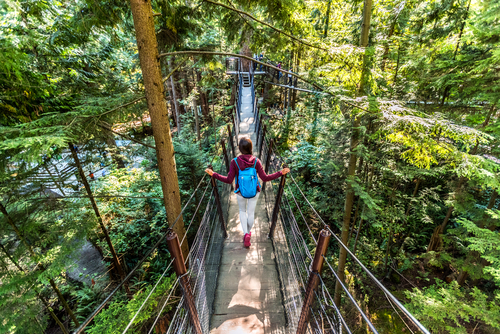A new route forward
The COVID-19 pandemic has hit tourism hard, but it has also offered a chance to realign the sector and place sustainability at its heart – boosting the already far-reaching benefits that tourism brings
As the G20 leaders meet for the Riyadh Summit, hosted by Saudi Arabia, tourism faces the biggest challenge in its history. Restrictions on travel, introduced to control the COVID-19 pandemic, brought an abrupt and unprecedented halt to the many social and economic benefits that tourism delivers, both for developing and developed countries. Indeed, data from the United Nations World Tourism Organization show that international tourist arrivals plummeted by 70% during the first eight months of 2020, placing millions of jobs and businesses at risk. Moreover, the impact is felt beyond tourist destinations: our sector touches almost every part of society and contributes to most of the Sustainable Development Goals. Quite simply, no tourists means no funding for wildlife conservation or for keeping heritage alive, as well as fewer opportunities for women, youth and those living in rural communities.
UNWTO, as the UN’s specialised agency for tourism, has led our sector’s response. Tourism is united like never before. In March, we convened the Global Tourism Crisis Committee, bringing together governments, including those of the G20 members. Alongside them, we invited business leaders, international organisations and our fellow UN agencies to share their concerns and expertise. From the start of the crisis, we identified the key ingredients needed for tourism to not only recover but also to drive wider societal recovery with bold leadership and cooperation.
The significance of tourism
Both within and outside the Global Tourism Crisis Committee, we have leveraged our unique influence as a part of the United Nations family to ensure tourism’s importance is recognised at the very highest political level. During the visit of a UNWTO delegation to Brussels, the members of the European Union committed to firm action to restart freedom of movement within the bloc. Tourism is explicitly mentioned as a part of the unprecedented economic support package planned for European economies to help them build back from the effects of the pandemic. And this recognition of tourism’s significance is shared globally.
In partnership with the Kingdom of Saudi Arabia, UNWTO hosted an extraordinary meeting of G20 tourism ministers, designed to identify ways to keep tourism’s contribution to the sustainable development agenda firmly on track despite the current challenges. Out of this came the AlUla Framework for Inclusive Development through Tourism. I encourage all G20 members to use this framework as a plan of action for placing sustainability and inclusivity at the heart of tourism’s recovery.
Restoring confidence
Over recent weeks, many destinations have been easing or rethinking restrictions on travel, enabling the benefits of tourism to slowly return. In many destinations, domestic tourism has also been actively promoted as a tool for mitigating the pandemic’s impact on jobs and economic growth. Leaders at the Riyadh Summit have a responsibility to seize this momentum. Governments need to work together to keep lifting travel restrictions in a timely, responsible and, above all, coordinated way. This is no time to go it alone. To do so will undermine public trust and delay the much-needed restart of tourism.
People want reassurance and consistency. International travel is safe – I have witnessed first-hand how every part of our sector has led the way in adapting to our new reality. But it is not enough just to be safe. Tourism also needs to be seen as safe and secure. To restore confidence, UNWTO is working to create a UNWTO Committee on Common Safety Protocols, tasked with harmonising rules and regulations affecting tourists. All governments, G20 members included, will only benefit from greater consistency and enhanced collaboration. Alongside this, the launch of a new UNWTO International Code for the Protection of Tourists will be a landmark moment, providing the first legal framework to protect tourists as consumers within the context of the pandemic and spreading responsibility for affected tourists fairly across the whole of the sector.
The G20 summit provides a platform for strengthening this collaborative approach. Furthermore, it enables leaders to look to the future. This moment is a chance to realign tourism, placing sustainability at the heart of everything we do. This is a chance that must be taken. New ideas and new voices must be embraced. This is why, since the start of the current crisis, we have stepped up our focus on promoting innovation and entrepreneurship. Working with the best new talent in addition to established leaders from both the public and private sectors, UNWTO is leading the restart of tourism. We call on all members of the G20 to work with us to get the sector moving again. Many millions of people are depending on it.












